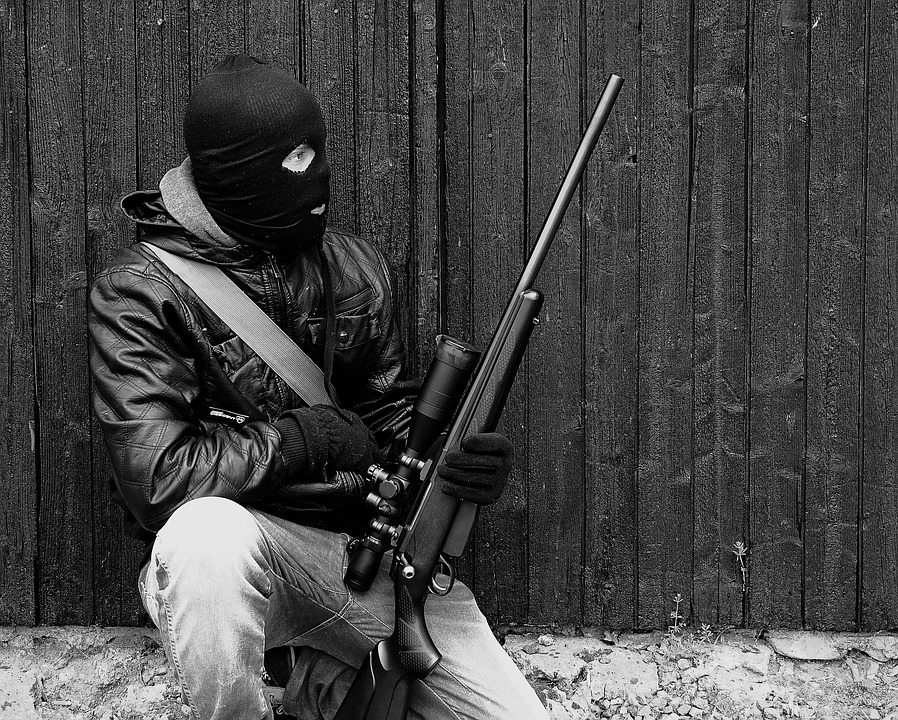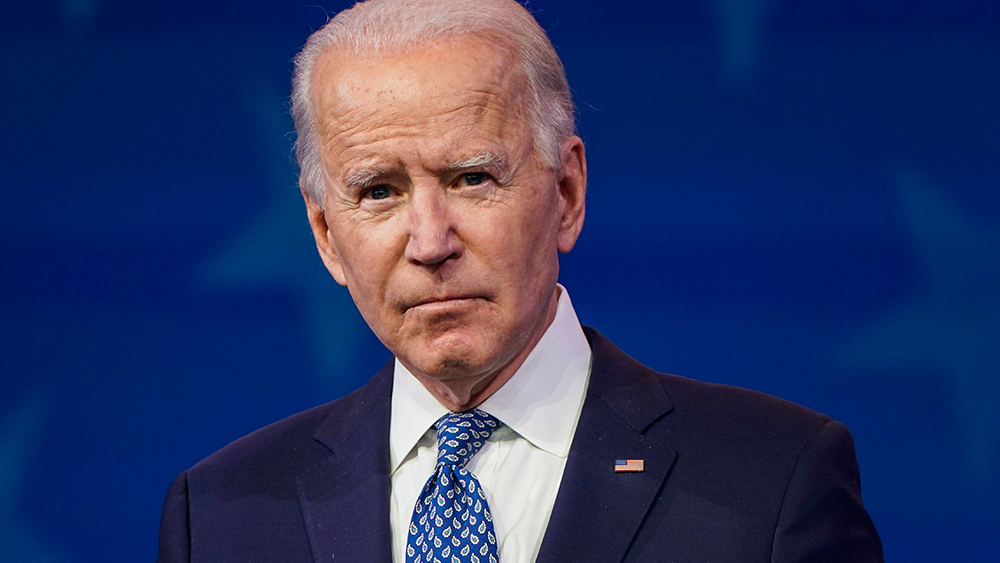
Advertisement
Recent domestic terror attacks by Islamic extremists are raising questions among officials and security experts about whether FBI counterterrorism training is deficient.
Article by Bill Gertz
The chief suspect in the New York City homemade bombing attacks last weekend, Ahmad Rahami, was probed for several weeks by the FBI in 2014 after his father alerted authorities to his terrorist leanings.
Rahami’s father, Mohammad Rahami, told reporters this week that he informed the FBI about concerns about his son after Rahami stabbed one of his brothers in a domestic dispute.
“Two years ago I go to the FBI because my son was doing really bad, OK?” the elder Rahami said. “But they check almost two months, they say, ‘He’s okay, he’s clean, he’s not a terrorist.’ I say OK.”
“Now they say he is a terrorist. I say OK,” Mohammad Rahami said.
The FBI acknowledged dismissing concerns that Rahami posed a terrorism threat. “In August 2014, the FBI initiated an assessment of Ahmad Rahami based upon comments made by his father after a domestic dispute that were subsequently reported to authorities,” the bureau said in a statement. “The FBI conducted internal database reviews, interagency checks, and multiple interviews, none of which revealed ties to terrorism.”
An FBI spokeswoman did not respond to questions about counterterrorism training.
Rahami is charged with setting off a bomb in downtown New York City that injured 29 people. Other bombs were planted nearby and in New Jersey. He was arrested after being wounded in a shootout with police.

Evidence gathered in the case reveals Rahami carried out the bombing in support of the terrorist groups Islamic State and al Qaeda.
A notebook found on Rahami mentioned ISIS terror leader Abu Muhammad al-Adnani, who was killed in a U.S. drone strike in Syria last August. The terror leader was quoted by Rahami as instructing sympathizers to kill non-Muslims.
Rep. Bob Goodlatte (R., Va.), chairman of the House Judiciary Committee, plans to question FBI Director James Comey about its counterterrorism work at a hearing Wednesday.
“From San Bernardino to Orlando to the most recent terrorist attacks in New York, New Jersey, and Minnesota, the United States has experienced a rise in radical Islamic terrorism and we must ensure that the FBI has the resources needed for its counterterrorism efforts in order to thwart these heinous plots and protect Americans from harm,” Goodlatte said in a statement.
Former FBI Special Agent John Guandolo said the FBI does not lack resources but has failed to understand the nature of the Islamist terror threat and thus has prevented proper training of counterterrorism agents over misplaced concerns of discrimination against Muslims.
“Obviously the FBI’s training program is catastrophically broken,” Guandolo said, noting the string of recent domestic attacks involving terrorists who were at least familiar to FBI counterterrorism agents because of indications they were linked to Islamists.
Six earlier terrorist attacks, among them mass murders at an Orlando nightclub and killings on a military base in Texas, were preceded by FBI investigations or inquiries into the attackers or their immediate family members.
The list of those recent attacks includes:
- The 2009 shooting at a U.S. military recruiting station in Little Rock, Arkansas, by a Muslim extremist who had been investigated earlier by the FBI
- The 2009 mass shooting at Fort Hood, Texas, by Army Maj. Nidal Hasan, who killed 13 people. Hassan was known to the FBI in 2008 through communications he had with an al Qaeda terrorist in Yemen
- The 2013 Boston Marathon bombings were carried out by two Islamist terrorists from Russia who were the subject of terrorism warnings provided to the FBI by the Russian government
- The 2015 shootings at military installations in Chattanooga, Tennessee, carried out by Muhammad Youssef Abdulazeez, whose father had been placed on a terrorism watch list in the past
- The 2015 shooting in Garland, Texas, by two terrorists, one of whom was known to the FBI in 2009 as a potential terrorist
- The 2016 Orlando nightclub killings of 49 people by Islamic terrorist Omar Mateen who was investigated twice by the FBI prior to the attack
Counterterrorism expert Sebastian Gorka said the FBI’s counterterrorism division has created excellent counterterrorism training courses since the 2009 Fort Hood attack.
“That is not the problem,” said Gorka, professor of strategy and irregular warfare at the Institute of World Politics. “The issue is the courses aren’t being held.”
Since last year, Justice Department funding for counterterrorism training was slashed by nearly 50 percent, Gorka said. As a result, the “Terrorism: Origins and Ideology” course designed specifically for Joint Terrorism Task Force members—whose mission is to catch people like Rahami before they kill—were reduced from eight courses per year to less than four.
“As a result our law enforcement officers are less prepared just as the threat has increased,” Gorka said.
Michael Waller, an expert on unconventional warfare, said the FBI is missing the bad guys in advance of their attacks due to a policy that prevents monitoring jihadists before they become violent.
“This policy began under the previous FBI director, Robert Mueller, and for years has had a chilling effect throughout the bureau,” said Waller, an analyst with the research firm Wikistrat.
Waller says the FBI made a strategic error after the September 11 terror attacks by reaching out to Muslim Brotherhood Islamists and their front groups in the United States to court “moderate” Muslims.
“That’s equivalent to the FBI asking the KGB for help in fighting Communist subversion and violence,” he said, referring to the Soviet-era political police and intelligence service.
“The administration’s whole approach to ‘countering violent extremism’ literally keeps avowed jihadists off the FBI watch list, as long as they are not ‘violent,’” Waller said. “So while the FBI does investigate some of these jihadis in advance, too often it lets them go, or misses them completely, until they murder and maim.”
Waller noted that any expression of Islamic extremism poses a threat to the Constitution because, whether violent or not, it advocates the overthrow of the U.S. government.
“Such individuals, by statute, are proper targets for arrest and prosecution,” he said. “The FBI’s job—like any federal agency’s job—is to defend the Constitution ‘against all enemies, foreign and domestic.’ In this regard, the FBI has failed.”
The FBI did not have information about the terrorists in advance of last year’s shooting in San Bernardino, California, in which a married couple pledging loyalty to ISIS murdered 14 people. However, the couple had communicated privately on social media about waging jihad, or holy war, before the attack.
A common tie between the perpetrators of several recent Islamist terror attacks, including the New York bombings, was English-speaking online al Qaeda recruiter Anwar al Awlaki, who was killed by a U.S. drone strike in 2011 but whose recruiting videos are available on the Internet.
Awlaki was an inspiration behind the shootings at Fort Hood, San Bernardino, and Orlando, as well as the New York bombings, according to investigations of those attacks.
Court documents in the New York and New Jersey bombing case reveal that Rahami, a naturalized U.S. citizen of Afghan descent, had made “laudatory references” to Awlaki that were found in a journal he carried at the time of his arrest after a shootout with police.
Rahami also praised Nidal Hasan, who killed 13 people during the Fort Hood attack.
The FBI complaint against Rahami indicates that he constructed several pressure cooker bombs planted in a two-state bombing spree. The bombs contained homemade explosives and were meant to be triggered remotely by cell phones.
Similar pressure cooker bombs were used in the Boston Marathon bombings. Plans on how to manufacture the devices have been published in an al Qaeda magazine called Inspire.
Guandolo, the former FBI agent, noted that the FBI complaint against Rahami states that he received “instructions of terrorist leaders” to “attack nonbelievers where they live.”
Additionally, Rahami stated in a personal journal that “guidance came [from] Sheik Anwar”—a reference to Awlaki.
“From whence did that ‘extremist’ idea come?” Guandolo said, noting that the Koran directs Muslims to “fight and slay the unbelievers where you find them and capture them, and besiege them, and lie in wait for them in each and every ambush.”
Rahami’s notebook ends with the passage that “the sounds of bombs will be heard in the streets. Gun shots to your police. Death to Your OPPRESSION.”
Read more at: freebeacon.com
Submit a correction >>
This article may contain statements that reflect the opinion of the author
Advertisement
Advertisements















